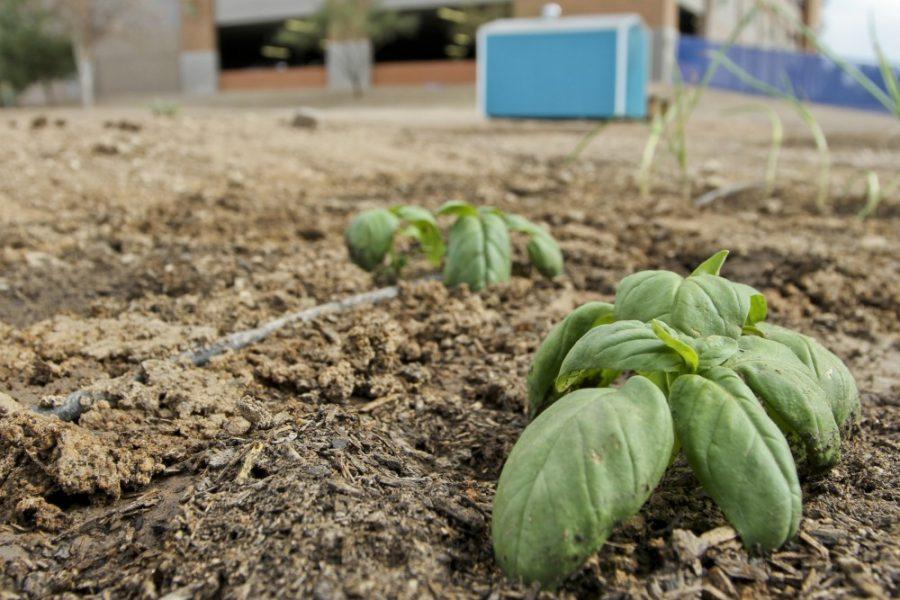In an effort to promote small sustainability projects on campus, the Green Fund Committee has set up a new mini-grants program intended to fund small-scale projects led by students and faculty.
Grants support projects such as increasing renewable energy at the UA, improving outdoor and indoor water efficiency, reducing waste and educational initiatives.
Each project has a funding cap of $1,500. The Green Fund Committee has allocated a total of $20,000 per fiscal year to be used for these projects.
The $20,000 for mini-grants comes out of the committee’s yearly allocation of $400,000 for larger projects, such as the UA community garden. Funding for the committee’s projects comes entirely from tuition.
“The mini-grant was designed to further enhance the funding power of the Green Fund as well as assist those projects that are smaller in size or those that may not align with the regular allocation schedule of the Green Fund,” said Lauren Erdelyi, natural resources, biology and psychology senior. “I think that these mini grants are an innovative way for the Green Fund to not only assist sustainable
projects throughout campus, but they also speak to the Green Fund’s larger goal of marketing the University of Arizona as a more environmentally sustainable institution and as a leader in sustainable campus movements.”
According to Office of Sustainability director Joe Abraham, the Green Fund has been key in improving sustainability at the UA.
Natalie Lucas, an environmental science and philosophy, politics, economics and law senior and the executive director of Students for Sustainability, said she believes the addition of the mini-grants has made the Green Fund even more beneficial. Lucas also said mini-grants offer more opportunities for projects that would otherwise have to wait longer for funding to take effect.
Students for Sustainability’s first mini-grant will go to funding an environmental justice educational program. The program will cooperate with the Associated Students of the University of Arizona, the Graduate and Professional Student Council, the history department and student groups such as the Soil, Water, and Environmental Science Club.
In order to receive funding, projects must directly address sustainability on campus and must directly or indirectly benefit students. In addition, mini-grants can be used to cover students’ hourly wages that relate to projects. However, they may not be used for assistantship positions for graduate students or for travel expenses.
Proposals for projects will be accepted from Sept. 1 to April 1. The first mini-grant proposal will be considered by the committee on Oct. 2.








